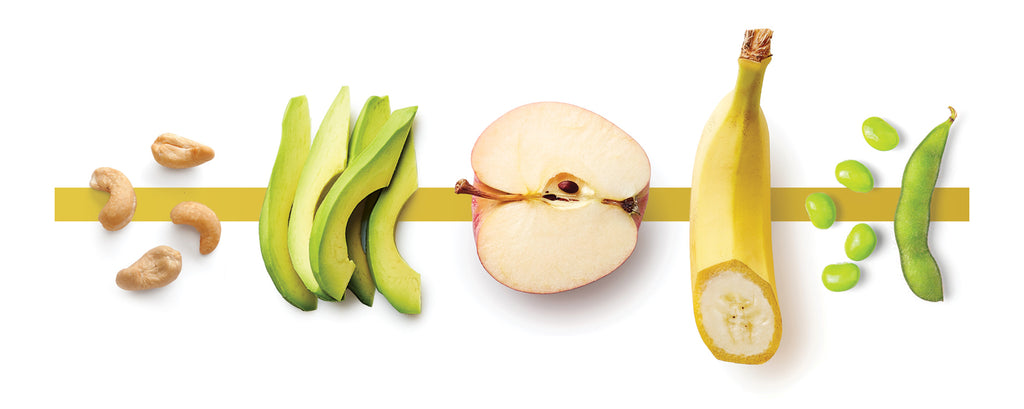| OWL Venice
Feel-Good Vitamins & Minerals

In many countries, the United States being no exception, the holidays are just around the corner. Come to think of it, you probably know someone who has already decorated for the Christmas season, effectively skipping right over Halloween and Thanksgiving.
Every year it seems that everyone is in a hurry to get to the next holiday, putting out decorations and themed merchandise earlier and earlier (PSL’s make their appearance in August nowadays). And this year particularly, it’s as though the whole world wants to speed into the New Year.
We can level with this sentiment one hundred percent - it’s been a rough, neverending year! Who wouldn’t want to speed ahead to the most wonderful time of any year? Especially a year that keeps delivering some ugly blows. But you don’t want to be bummed when you’re supposed to be having a holly jolly holiday with your family, right? If the global situation has you down in the dumps and a little extra gloomy this year, we have a few suggestions to boost your mood.
If you think we’re going to talk about the going-ons in your gut to help improve your mood...well, you’d be correct! More specifically, select vitamins and minerals that have a feel-good effect in the brain.
Let’s talk brain chemistry and how ingesting certain micronutrients can balance out your happy hormones along with other positive effects.
What’s Going On In Your Head?
The brain is a maze of interconnected pathways and systems that have control over daily functions such as when to eat, when to sleep, how you think, and how you feel. If you’ve seen our article on gut health articulating how it affects your brain via the gut-brain axis, then you know that your stomach is the one responsible for signaling your brain to perform many of its functions.
Your nutritional habits, whether healthy or not so healthy, activate hormonal pathways directly connected to your brain, holding incredible persuasion over how your brain makes its decisions. This means that your physical, mental, and emotional reactions to daily happenings rely heavily on what you eat.
Micronutrients - meaning the trace amounts of vitamins and minerals you consume - are responsible for processes such as cell creation, immune function, muscle and bone development, and brain function. Let’s take a look at a few micronutrients that work with the brain to help improve mood.

VITAMIN D
Increasing amounts of research points to the connection between D and neurological functions including the regulation of dopamine. One study of a large sampling of adults shows that higher levels of Vitamin D were associated with less inclinations toward depressive disorders and personality traits. The study concluded Vitamin D to be a helpful treatment for people in certain depressive disorder subgroups such as Seasonal Affective Disorder, old age, and low activity levels.
We can find rich sources of Vitamin D in our foods such as:
- White and portabello mushrooms
- Eggs
- Fortified milk (2%, almond, oat, and soy)
- Cheese
- Fortified yogurt and orange juice
- Beef liver
- salmon, mackerel, trout, tuna
- Cod liver oil
Ten minutes in the sun per day can also get you a good dose of Vitamin D through skin absorption. Or, if you live in places that the sun tends to avoid, you can also take a Vitamin D supplement under the guidance of your doctor.

FOLATE
Is a mineral that works in concert with B Vitamins to improve cognitive performance and mood. Folate can be found naturally in food, but patients who suffer from bipolar disorder, depression, and cognitive dysfunctions show extremely low levels of folic acid in their system. Foods high in folate include:
- Mustard Greens
- Boiled Spinach
- Broccoli
- Romaine Lettuce
- Green Peas
- Asparagus
- Brussel Sprouts
- Avocado
- White Rice
- Blackeyed Peas
- Kidney beans
- Beef Liver
Foods that are fortified with folic acid (the synthetic form of folate) should be combined with B12 and B6 to ensure complete metabolization.

B12
In addition to acting as a catalyst for folate metabolization, B12 has been linked to the synthesizing of serotonin, your happy hormone. While the connection between the two is not completely understood, studies show promising evidence that B12 lessens depressive symptoms and improves mood.
B12 is present in many animal products including:
- Clams
- Trout
- Salmon
- Tuna
- Beef
- Chicken
- Ham
- Milk
- Yogurt
- Cheese

MAGNESIUM
Magnesium is arguably one of the most important minerals for overall wellness in that it is widely connected to brain biochemistry and the production of brain cells. It has been administered to treat many neuromuscular and psychiatric dysfunctions such as asthma, migraines, and arrhythmias. Magnesium was documented as a home remedy for depressive symptoms beginning 100 years ago. One study shows that magnesium’s effectiveness in treating depression is comparable to widely used and highly effective antidepressant drugs.
Magnesium is found in many seeds, nuts, legumes, fruits, and grains such as:
- Pumpkin seeds
- Chia seeds
- Almonds
- Cashews
- Peanuts and peanut butter
- Black beans
- Kidney beans
- Edamame
- Bananas
- Avocados
- Apples
- Raisins
- Rice
- Oatmeal
Fortify Your Feel-Good Toolbox
Remember, Rome wasn’t built in a day. You won’t instantly feel better after eating a handful of nuts or a bowl of peas. It takes time, consistency, and dedication. Wellness is a 24/7 job with a magnificent return on investment.
Eating nutrient dense foods is a fantastic way to take care of your body and mind. But it’s not the only way. When you become gloomy with the state of the world, it is important to practice a positive mindset, practice gratitude, and live in the moment. Enjoy the little things and find things that make you smile. Be patient with yourself. Prioritize yourself.